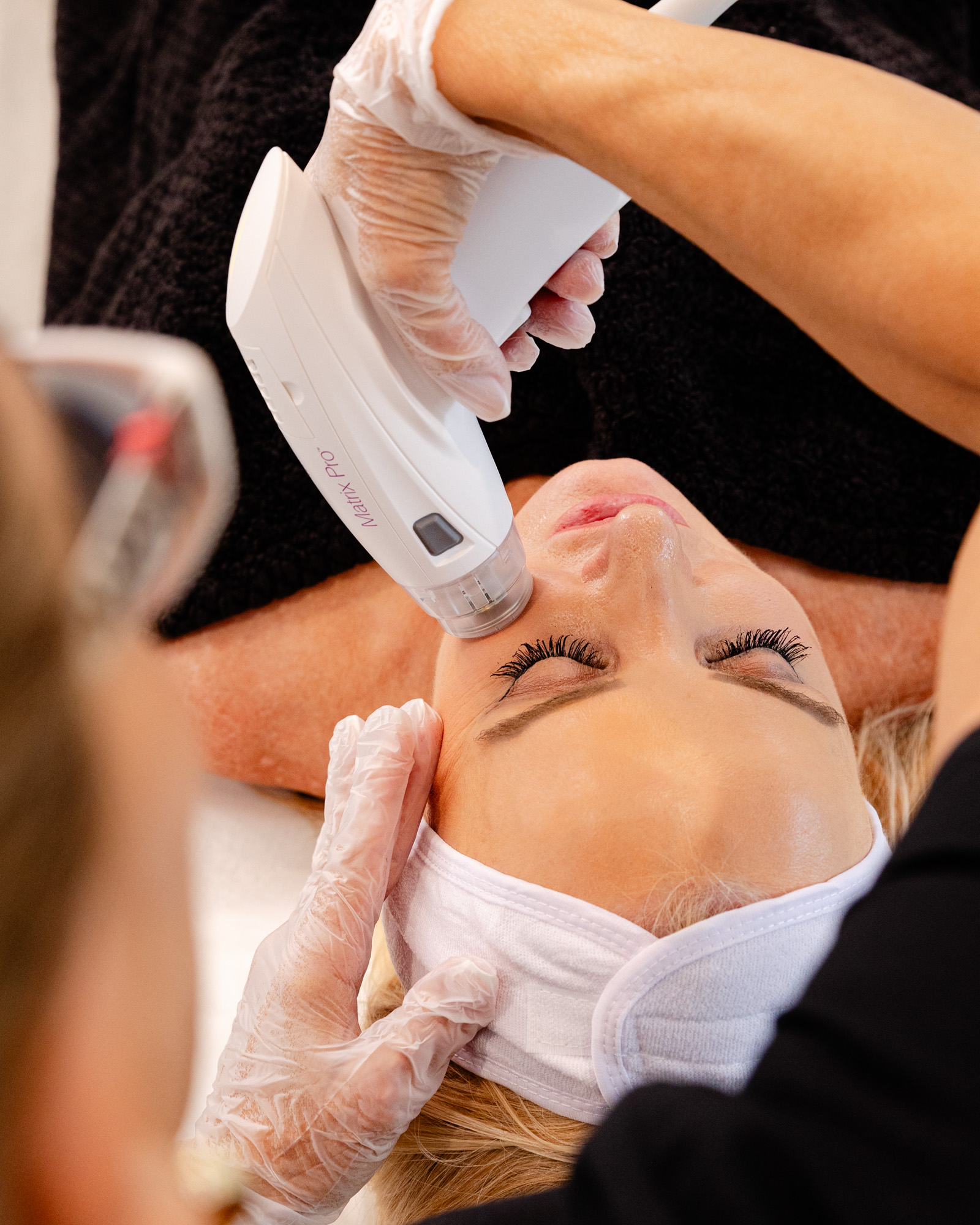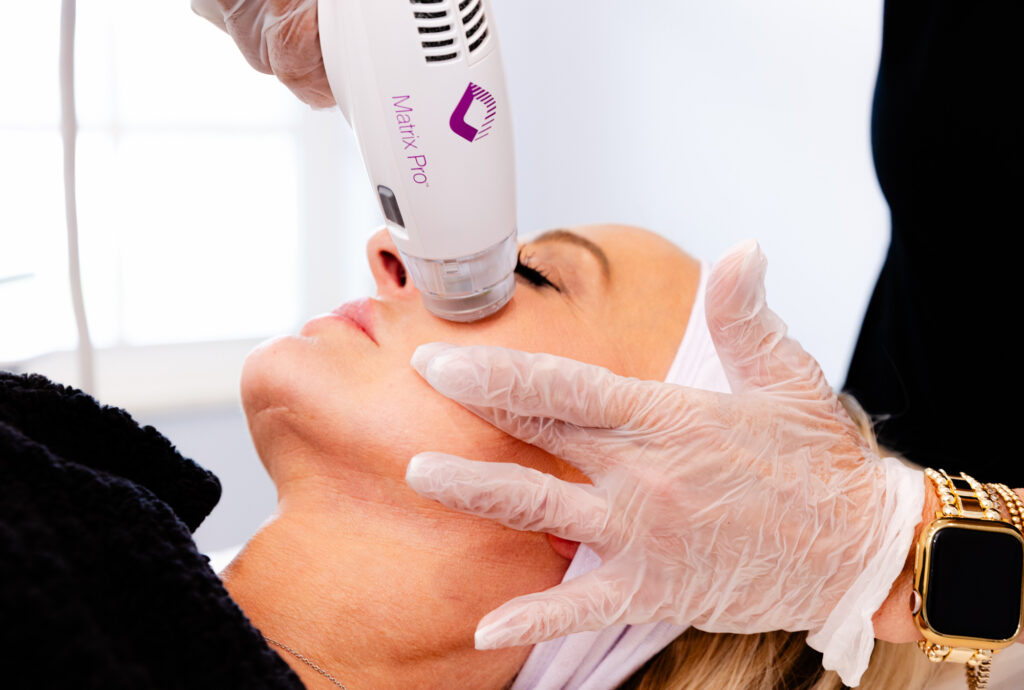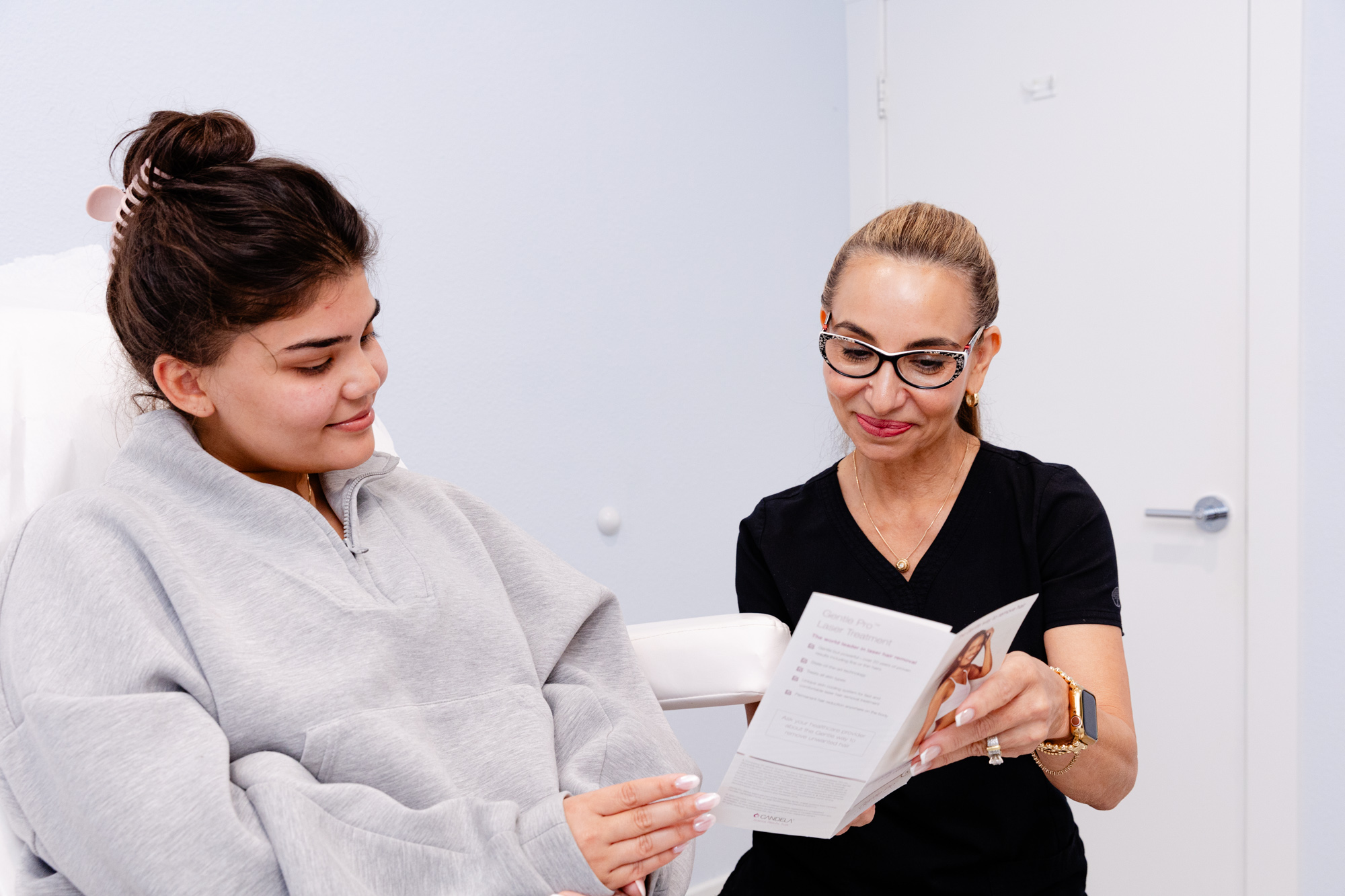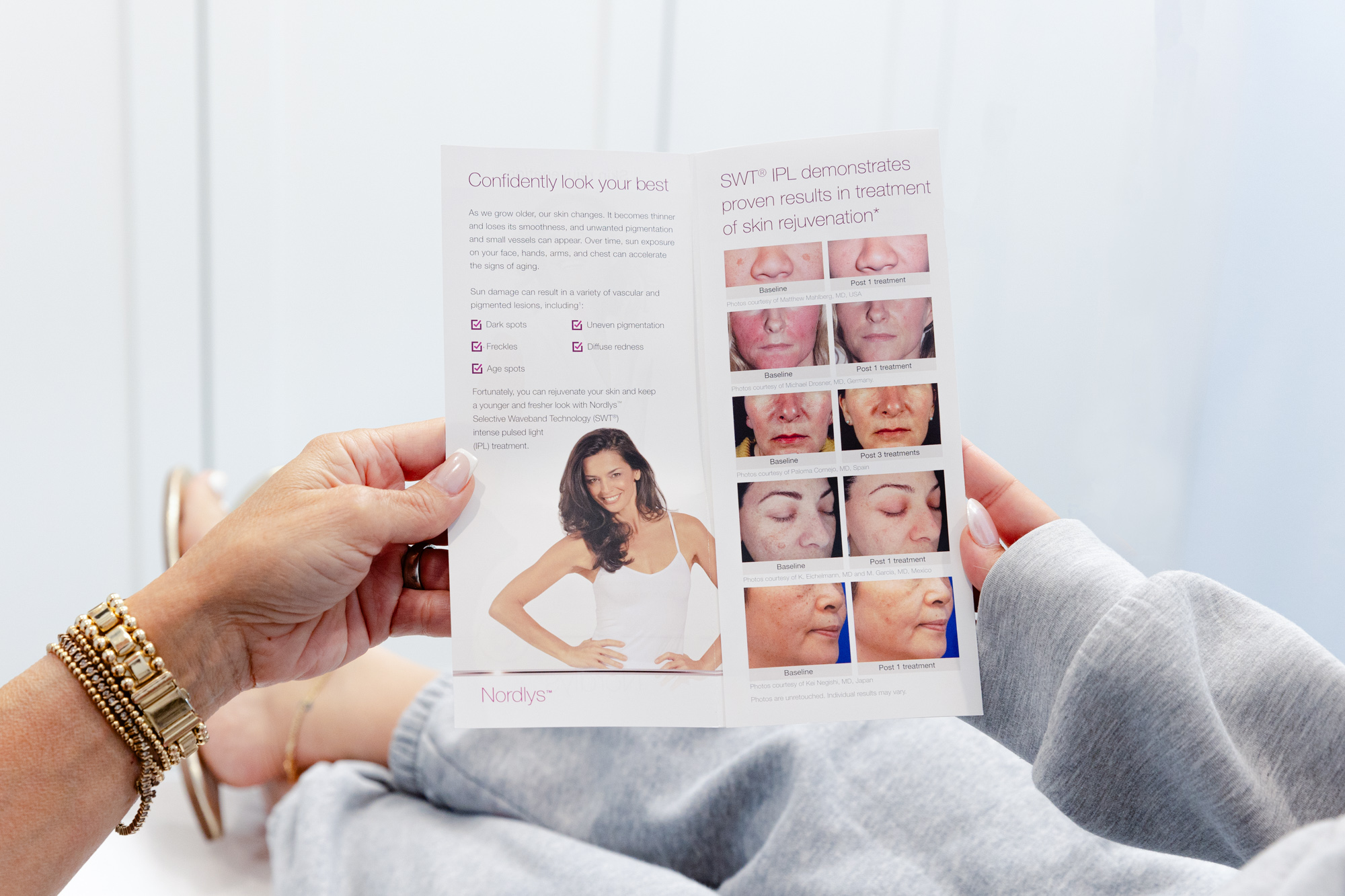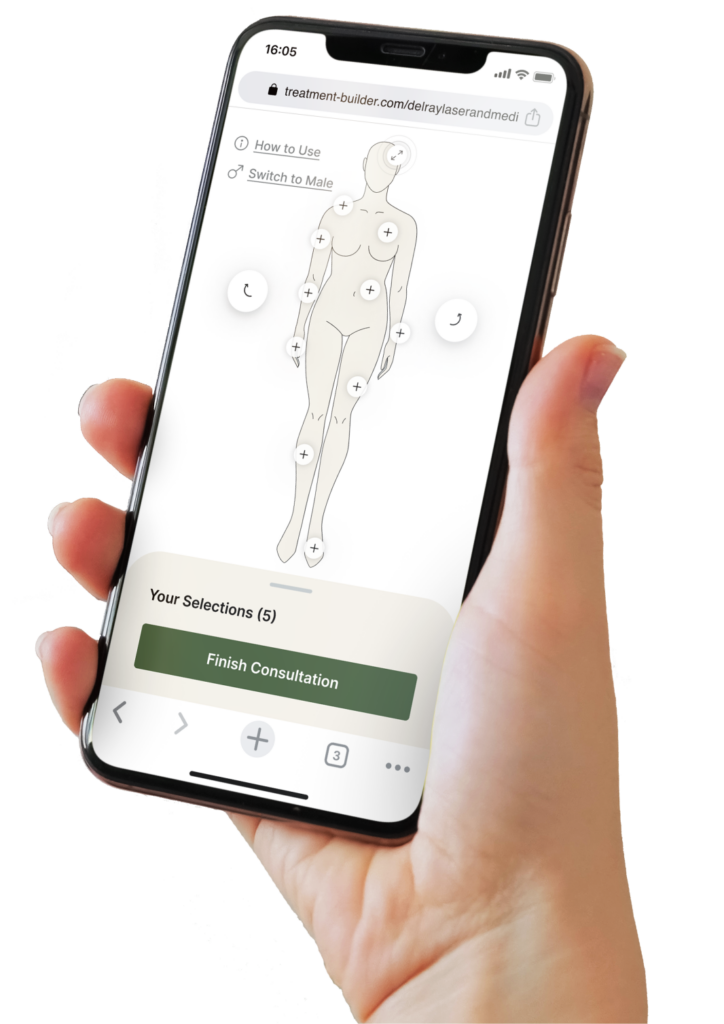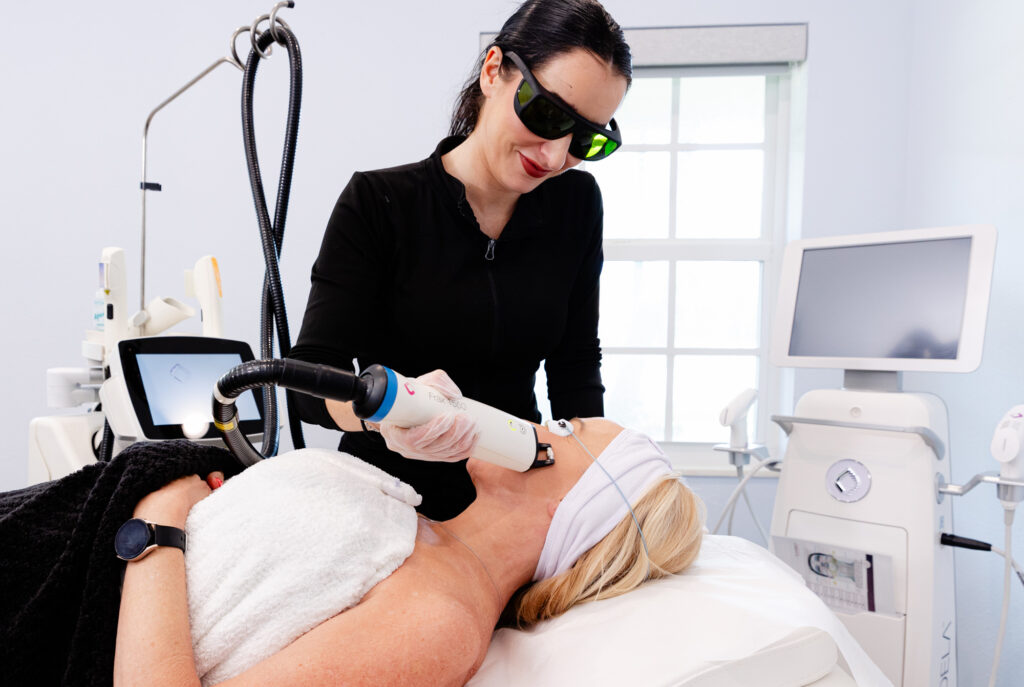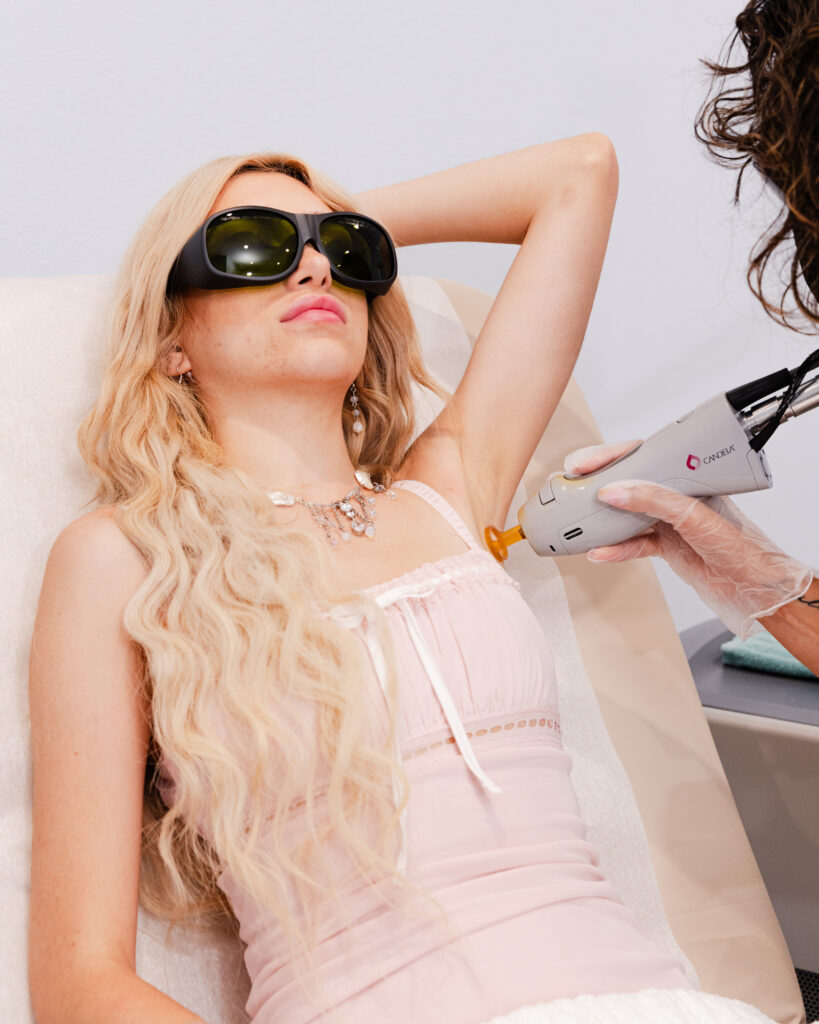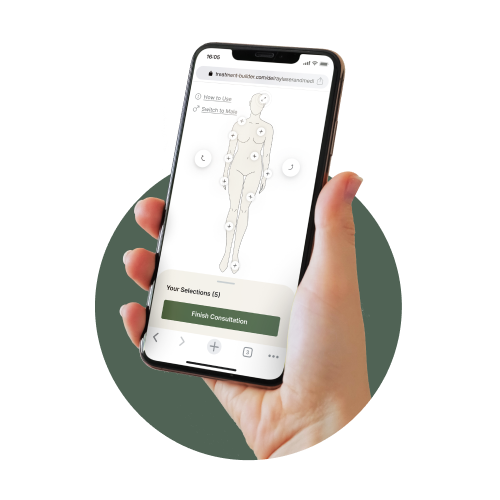Depending on your needs, microdermabrasion can be an addition to your already amazing skincare routine. In addition, it can be a way to address a particular skin concern. This non-invasive treatment involves a handheld device with a tip that is made of tiny aluminum oxide crystals. As the applicator sweeps over the skin, these crystals gently disperse, disrupting the dead cells on top. Finally, a vacuum sucks away both the crystals and dead skin. The result is smoother, brighter skin.
In just half an hour, you can resurface your skin in a gentle yet effective procedure. After your appointment, your results may last for roughly 2 to 4 weeks. Once this time has passed, we recommend coming in for another appointment for microdermabrasion in Delray Beach for maintenance.
Microdermabrasion helps solve a wide variety of complexion problems. Those with acne often report that the lack of dead cells helps keep their skin clear of clogged pores. You can also address aging signs with this procedure. By clearing away the dullness of your complexion, fine lines and wrinkles can look less prominent. Besides that, scarring and sun damage can be treatable with a microdermabrasion treatment. For any questions about what you can and cannot treat with this procedure, let us know and we can answer them for you.

